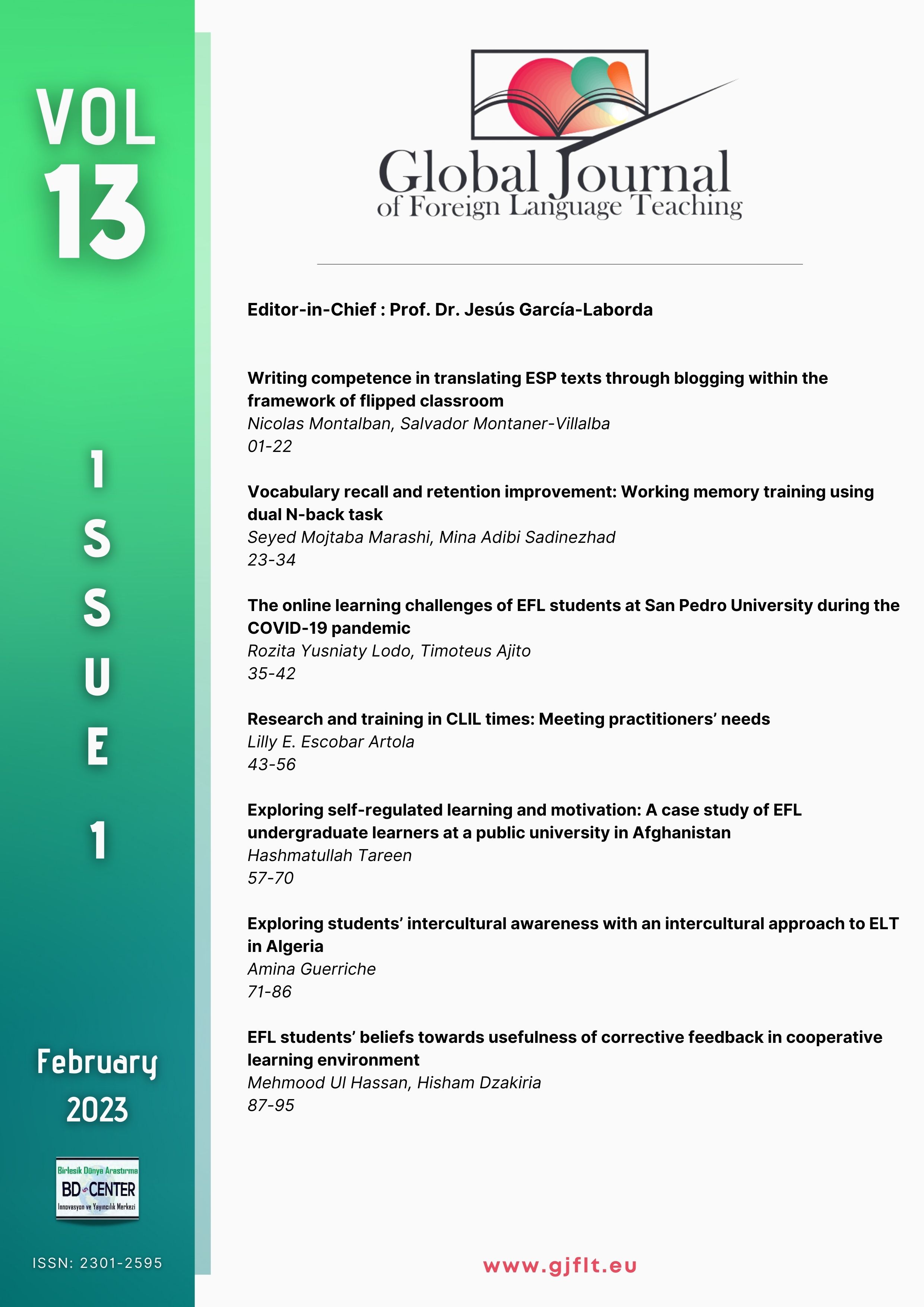Exploring students’ intercultural awareness with an intercultural approach to ELT in Algeria
Main Article Content
Abstract
The recent trends in foreign language teaching influenced widely by the process of globalisation, interculturalism, and global flows are leaning towards adopting an intercultural perspective to help in developing students who are global citizens able to effectively function across diverse boundaries. Researchers call for an intercultural learning and teaching perspective that would foster and increase intercultural awareness and understanding. The present research aims to unfold whether including the cultural dimension in foreign language instruction can help in developing students’ intercultural awareness. In doing so, a cultural pedagogical experiment was designed and conducted for the period of 1 year at the level of the university. Data were collected qualitatively and analysed thematically. Results help in drawing important implications for educational institutions, foreign language teachers, and syllabus designers about the importance and effectiveness of perceiving foreign language instruction as a social activity that can nurture interculturally aware and competent individuals.
Keywords: ELT, intercultural awareness, knowledge, pedagogy, intercultural understanding
Downloads
Article Details

This work is licensed under a Creative Commons Attribution-NonCommercial-NoDerivatives 4.0 International License.
Authors who publish with this journal agree to the following terms:- Authors retain copyright and grant the journal right of first publication with the work simultaneously licensed under a Creative Commons Attribution License that allows others to share the work with an acknowledgement of the work's authorship and initial publication in this journal.
- Authors are able to enter into separate, additional contractual arrangements for the non-exclusive distribution of the journal's published version of the work (e.g., post it to an institutional repository or publish it in a book), with an acknowledgement of its initial publication in this journal.
- Authors are permitted and encouraged to post their work online (e.g., in institutional repositories or on their website) prior to and during the submission process, as it can lead to productive exchanges, as well as earlier and greater citation of published work (SeeThe Effect of Open Access).
